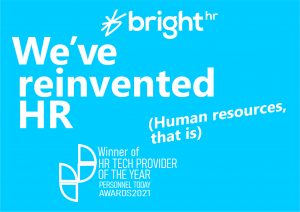Human Resource Management
Right Person For The Right Job At The Right Time

Human resource management (HRM or HR) is the strategic approach to the effective and efficient management of people in a company or organization such that they help their business gain a competitive advantage. It is designed to maximize employee performance in service of an employer’s strategic objectives.
Human resource management is primarily concerned with the management of people within organizations, focusing on policies and systems. overseeing employee-benefits design, employee recruitment, training and development, performance appraisal, and reward management, such as managing pay and employee-benefits systems. HR also concerns itself with organizational change and industrial relations, or the balancing of organizational practices with requirements arising from collective bargaining and governmental laws.
Employees tend to be some of the most valuable assets that that organization has. If people are the greatest creators of value in organisations, then good performance management is critical for an organisation’s success. Employees need to understand what’s expected of them, and to achieve those goals they must be managed so that they’re motivated, have the necessary skills, resources and support, and are accountable.
Performance management aims to monitor, maintain and improve employee performance in line with an organisation’s objectives. It’s a not a single activity, but rather a group of practices that should be approached holistically.
Performance management describes activities that:
- Establish objectives through which individuals and teams can see their part in the organisation’s mission and strategy.
- Improve performance among employees, teams and, ultimately, organisations.
- Hold people to account for their performance by linking it to reward, career progression and termination of contracts.
Some of the main tools used in performance management, include objective setting, performance ratings, performance appraisals and feedback, learning and development, and performance-related pay.
An organisation’s strategic goals should be the starting point for departmental goals, followed by agreement on individual performance and development priorities. Individuals and managers can then draw up plans and monitor performance continuously. Feedback and reviewing progress against objectives should be regular, and could be supported through the year by periodic formal performance reviews, as well as by goal setting, project planning and training.
We support our clients to understand and engage with the HR management process. Our key areas of support are:
- Supplying and reviewing of HR policies and systems
- Staffing needs analysis – ensure you have staffing sufficiency to meet your business and clients’ needs
- Recruitment and staffing solutions – take the pain out of recruiting. We recruit from UK and abroad
- Workforce development planning – involves staffing needs analysis to ensure you have staff with the right qualifications and skills to meet your business and clients’ needs
- Training and development needs analysis and competency assessment – understand gaps in skills and how best to close them
- Training and development courses and activities – equip your team with the skills and confidence to be the best they can be
- Manager Coaching and mentoring – Develop the leadership and management skills to get things done and bring out the best in your team, whether you’re an aspiring, new, or seasoned leader.
- Employee performance management – Get the best out of your employee and deliver on organisational and stakeholder objectives
- Independent investigating work-related complaints and harassment allegations


